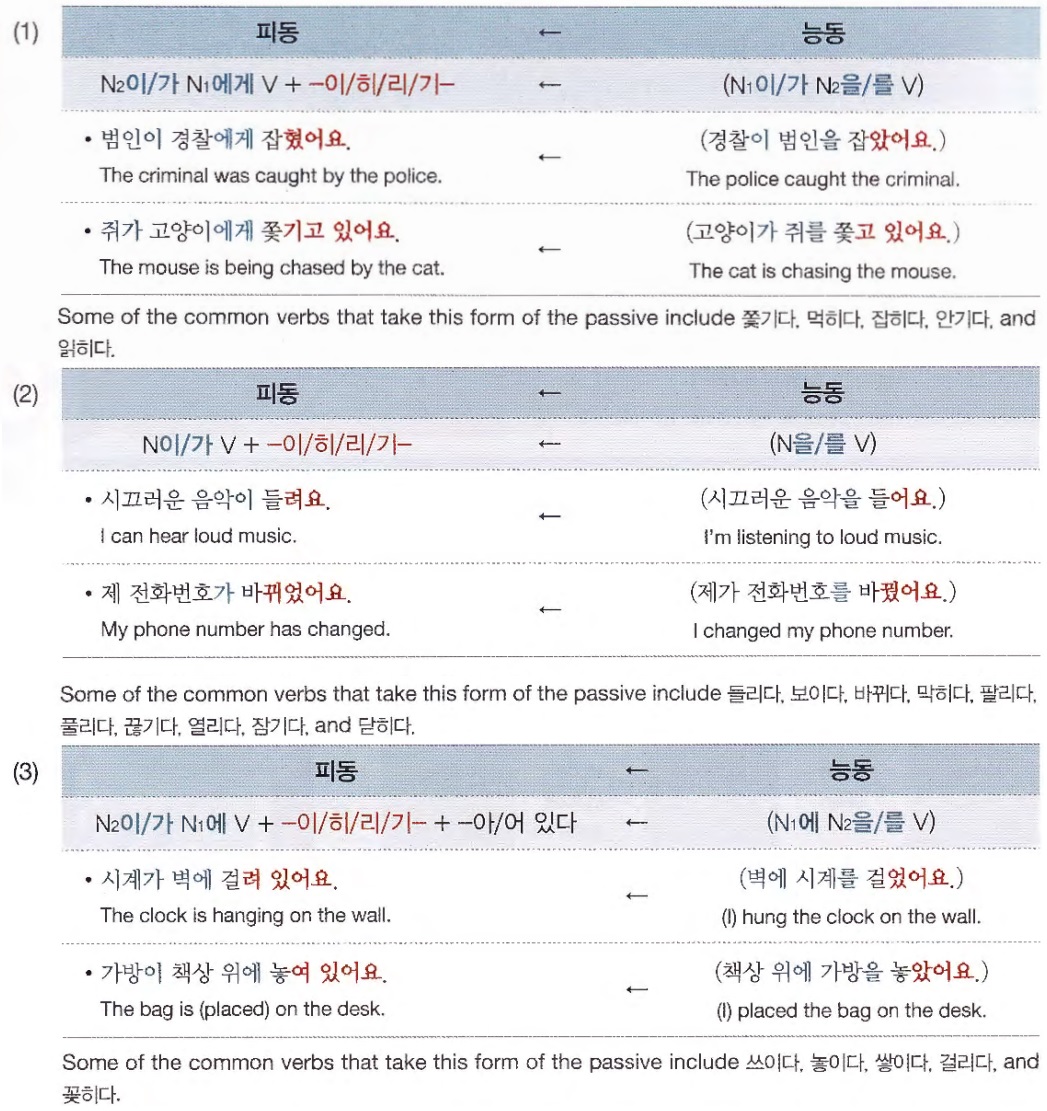 가: 아이가 인형을 안아요.
가: 아이가 인형을 안아요.
The child hugs a doll.
나: 아이가 할아버지에게 안겼어요.
The child was held by the grandfather.
가: 마크 씨가 문을 열어요.
Mark opens the door.
나: 문이 열렸어요. / 문이 열려 있어요.
The door opened. / The door is open.
This expression is used when the subject’s action or behavior occurs either because of an action performed by someone else or because of some other indirect action performed by some person or thing. It is made by attaching -이/히/리/기- to the verb stem. Note that only some verbs allow this affix.

The most common passive verbs are as follows.

These single-word passive expressions are used in the following forms. The original action form is shown on the right, and this is changed to the passive form on the left.

>> You can click on the title of each grammar below to learn about other grammar related to ‘Passive Expressions’
01 단어 피동 (-이/히/리/기-)
02 -아/어지다
03 -게 되다
>> Full of Intermediate grammar: Click here

Thanks to your post….